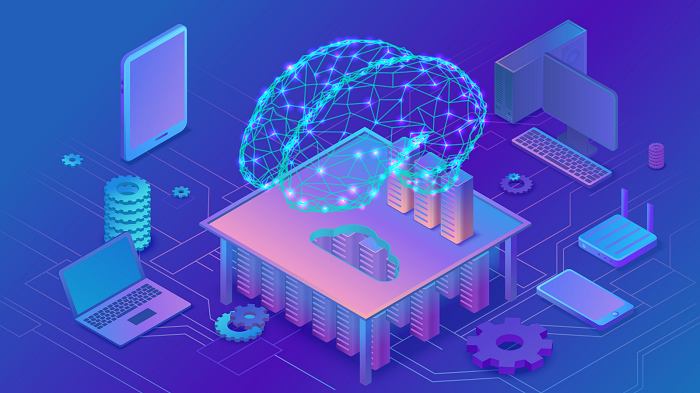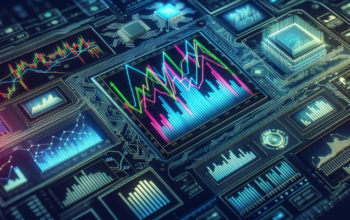Artificial Intelligence (AI) has rapidly evolved from a concept of science fiction into a transformative force in the modern world. From autonomous vehicles to virtual assistants, AI is reshaping industries, revolutionizing the way businesses operate, and altering the landscape of global economies. As AI technology continues to advance, its impact on various sectors will only grow, leading to significant opportunities and challenges. This article explores how AI is transforming industries and what the future holds for this groundbreaking technology.
AI in Healthcare: Revolutionizing Patient Care
One of the most significant impacts of AI is in the healthcare industry. AI-powered systems are revolutionizing patient care by enhancing diagnostics, personalizing treatment plans, and improving the efficiency of healthcare delivery. Putflix.com is a platform that brings the latest news about technology which helps you to update your knowledge. Machine learning algorithms can analyze vast amounts of medical data, identifying patterns and predicting outcomes with remarkable accuracy. This capability enables early detection of diseases, such as cancer, and helps doctors make more informed decisions.
Moreover, AI is driving advancements in personalized medicine. By analyzing genetic information and patient history, AI can tailor treatment plans to individual needs, improving outcomes and reducing side effects. AI-powered robotic surgery systems are also making procedures more precise and less invasive, leading to faster recovery times for patients.
However, the integration of AI in healthcare also presents challenges, including concerns about data privacy, the potential for algorithmic bias, and the need for robust regulatory frameworks to ensure patient safety.
AI in Finance: Enhancing Decision-Making and Efficiency
The finance industry has been quick to adopt AI, using it to enhance decision-making, improve customer service, and increase operational efficiency. AI algorithms are capable of analyzing large datasets in real time, providing financial institutions with insights that were previously unattainable. For example, AI can identify trends in stock markets, predict market movements, and assist in making investment decisions.
In addition to investment, AI is transforming customer service in the finance industry. Chatbots and virtual assistants are now commonplace in banking, providing customers with instant support and personalized advice. These AI-driven tools not only improve the customer experience but also reduce the need for human intervention, leading to cost savings for financial institutions.
Moreover, AI is being used to detect and prevent fraud. By analyzing transaction patterns and identifying anomalies, AI systems can flag suspicious activities and prevent fraudulent transactions in real time. However, the reliance on AI in finance also raises concerns about the potential for errors and the need for transparency in decision-making processes.
AI in Manufacturing: Driving Automation and Efficiency
AI is playing a pivotal role in the manufacturing industry by driving automation, enhancing productivity, and reducing costs. AI-powered robots and machines are increasingly being used in production lines, performing tasks that were once done manually. These robots can work around the clock, with greater precision and consistency than human workers, leading to significant improvements in efficiency.
In addition to automation, AI is being used to optimize supply chains and predict maintenance needs. By analyzing data from various sources, AI systems can identify inefficiencies in the supply chain, predict demand, and optimize inventory levels. Predictive maintenance, powered by AI, allows manufacturers to monitor equipment in real time and anticipate when maintenance is needed, reducing downtime and extending the lifespan of machinery.
While AI is driving significant advancements in manufacturing, it also raises concerns about job displacement and the need for workers to acquire new skills to stay relevant in an increasingly automated industry.
AI in Retail: Personalizing the Shopping Experience
The retail industry is being transformed by AI, which is enabling retailers to offer personalized shopping experiences, optimize inventory management, and improve customer service. AI algorithms analyze customer data, such as browsing history and purchase behavior, to offer personalized product recommendations and targeted marketing campaigns. This level of personalization enhances customer satisfaction and drives sales.
AI is also being used to optimize inventory management by predicting demand and automating restocking processes. This reduces the likelihood of stockouts and overstock situations, leading to cost savings for retailers. In addition, AI-powered chatbots and virtual assistants are improving customer service by providing instant support and answering queries.
However, the use of AI in retail also raises ethical concerns, particularly regarding data privacy and the potential for algorithmic bias in personalized recommendations.
AI in Transportation: Revolutionizing Mobility
The transportation industry is on the brink of a major transformation, driven by AI. Autonomous vehicles, powered by AI, have the potential to revolutionize mobility, making transportation safer, more efficient, and more accessible. AI systems in autonomous vehicles can process vast amounts of data from sensors and cameras, allowing them to navigate roads, avoid obstacles, and make split-second decisions.
In addition to autonomous vehicles, AI is being used to optimize traffic management and improve public transportation systems. AI algorithms can analyze traffic patterns, predict congestion, and optimize traffic signals to reduce travel times and emissions. In public transportation, AI is being used to improve route planning, predict delays, and enhance the overall passenger experience.
However, the widespread adoption of AI in transportation also presents challenges, including regulatory hurdles, safety concerns, and the need for robust cybersecurity measures to protect against potential threats.
The Future of AI: Opportunities and Challenges
As AI technology continues to evolve, its impact on industries will only grow, leading to significant opportunities and challenges. The integration of AI into various sectors has the potential to drive innovation, improve efficiency, and create new business models. However, it also raises important ethical and societal questions that must be addressed.
One of the key challenges facing the future of AI is ensuring that its benefits are distributed equitably. As AI systems become more prevalent, there is a risk of increasing inequality, as those with access to advanced technology may gain a significant advantage over those without. Additionally, the potential for job displacement due to automation is a concern that must be addressed through education and reskilling programs.
Another challenge is ensuring that AI systems are transparent, fair, and accountable. As AI becomes more integrated into decision-making processes, it is essential to ensure that these systems do not perpetuate bias or discrimination. This requires the development of ethical guidelines and regulatory frameworks to govern the use of AI.
In conclusion, AI is reshaping industries in profound ways, driving innovation, efficiency, and personalization. As we move forward into an increasingly AI-driven world, it is essential to address the challenges and opportunities presented by this technology. By doing so, we can harness the power of AI to create a better future for all.



